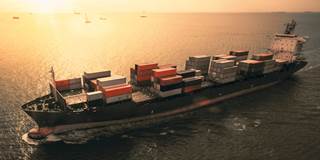It is often said that with risk comes opportunity. What initially was viewed as an unfortunate US shift to protectionism may in fact have opened a window to improve the functioning of the global economy and world trade.
MUNICH – There is a subtle yet important change occurring in how political leaders think about international trade, including how to remedy long-standing problems. It results from a key distinction between the “what” of trade (where there is relatively broad-based agreement among countries) and the “how” (where differences have tended to undermine important relationships, whether transatlantic or between China and the world’s advanced countries). As a result, there is some room for greater optimism than is suggested by talk of damaging trade wars, stifling investment restrictions, technological conflicts, and multiplying great-power tensions.

MUNICH – There is a subtle yet important change occurring in how political leaders think about international trade, including how to remedy long-standing problems. It results from a key distinction between the “what” of trade (where there is relatively broad-based agreement among countries) and the “how” (where differences have tended to undermine important relationships, whether transatlantic or between China and the world’s advanced countries). As a result, there is some room for greater optimism than is suggested by talk of damaging trade wars, stifling investment restrictions, technological conflicts, and multiplying great-power tensions.